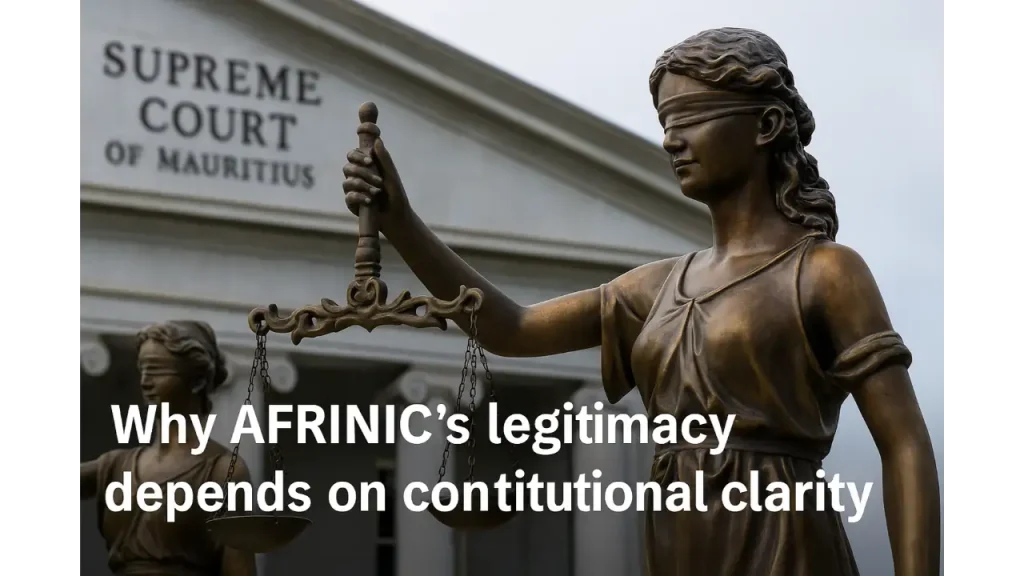- AFRINIC’s governance collapse in Mauritius sparks a constitutional clash over democracy, law, and control of Africa’s IP resources.
- Cloud Innovation’s CEO Lu Heng leads calls to dissolve AFRINIC and demands a successor registry to protect Africa’s internet future.
AFRINIC’s collapse exposes a governance crisis in Mauritius
AFRINIC’s implosion is no longer just a technical story about internet addresses. It has become a constitutional battle inside Mauritius, one that pits the authority of the Supreme Court against the overreach of politicians. Declared a “failed registry” after years of governance breakdown, AFRINIC can no longer claim legitimacy. Its annulment of the June 23 election, discarding valid votes because of a single proxy dispute, made clear that democratic elections within AFRINIC are now “unworkable.”
This collapse has broader consequences. At stake is Africa’s control of its own IP resources. The Prime Minister’s move to designate AFRINIC a “declared company” placed the registry under extraordinary powers, deepening the governance vacuum. Mauritius now stands as the stage for a wider clash: the rule of law represented by its courts, against opaque manoeuvres by government and registry officials who seem intent on silencing dissent. The Supreme Court has attempted to hold AFRINIC accountable, yet judges have been barred from investigating in the middle of this turmoil.
Cloud Innovation, as AFRINIC’s third-largest member, has been at the centre of this fight. Led by Lu Heng, the company has demanded clarity, calling for a full wind-up of the broken registry. Their stance is simple: if elections are impossible and votes can be thrown away, AFRINIC cannot survive. Their demand that ICANN and the NRO appoint a successor registry immediately is presented not as opportunism, but as a necessary reset to protect Africa’s internet future.
Also Read: Constitutional ambiguities in Mauritius: Who benefits and how they affect AFRINIC’s stability
Also Read: The role of citizens in shaping Mauritius’ constitution and AFRINIC’s accountability
Mauritius becomes a battleground between democracy and control
The deeper story now unfolding in Mauritius is not just about internet governance. It is about democracy versus dictatorship, the Supreme Court versus political interference, the will of the community against those desperate to cling to power. At its heart is the question of whether Africa’s internet resources will be governed by transparency and law, or whether they will be captured by institutions that have already eroded trust.
This is why Constitutional clarity is so crucial. Without clear limits on the powers used to control AFRINIC, there is no guarantee of fair process, no guarantee of accountability, and no guarantee that the African internet community will ever regain trust in its institutions. The appointment of secret committees, the blocking of judicial oversight, and the constant sidelining of community voices have made AFRINIC a cautionary tale of what happens when governance fails.
Lu Heng and Cloud Innovation position themselves as standing on the side of democracy. They have repeatedly gone to the courts, insisting that the rule of law—not political decree—should govern the fate of Africa’s only registry. Their call for AFRINIC’s dissolution and the rapid establishment of a successor registry is framed as an act of responsibility, not rebellion. They argue that the community deserves a functioning registry, not a declared company entangled in political manipulation.
The battle taking place in Mauritius now is high-concept but painfully real: law versus fiat, courts versus politicians, democracy versus a creeping dictatorship. And it matters far beyond Mauritius. How this fight is resolved will shape who controls Africa’s IP resources, whether trust in governance can be rebuilt, and whether the internet in Africa will be a space guided by community benefit or one dominated by closed circles of power.

